Imran Khan, Pakistan’s prime minister, issued a 100 Days Agenda before his election in August 2018, laying out his plan and goals for his first 100 days in office. On November 8, the Center for Middle East Policy at Brookings hosted an event with Senior Fellow Bruce Riedel and Visiting Fellow Madiha Afzal to discuss Khan’s performance as prime minister and how it compares to his stated goals. The event was moderated by Senior Fellow Michael O’Hanlon.
Though Pakistan is an important country on the international stage for a number of reasons, Riedel started the discussion by honing in on a few.
- Pakistan “has the fastest growing nuclear arsenal in the world” and is the only confirmed state in the process of developing tactical nuclear weapons.
- It has been the sponsor of various terrorist organizations, such as Lashkar-e-Taiba.
- It is the second-largest Muslim-majority country and has a significant Shiite minority. If sectarian conflict is to erupt in Pakistan, it is likely to spread to the rest of the Muslim world.
- Foreign relations:
- Pakistan’s relationship with Iran is significant because they share resource-rich Baluchestan.
- There remains the possibility that Pakistan and India will engage in a nuclear exchange.
- Pakistan is China’s most important ally, given that 40 percent of China’s military exports go to Pakistan.
- There is military cooperation, and perhaps also nuclear cooperation, between Saudi Arabia and Pakistan.
- “There is no way for the United States to get out of Afghanistan in an honorable and orderly way unless Pakistan is part of that equation,” according to Riedel.
Riedel went on to note that while many previous presidents faced difficulty in how they approached relations with Pakistan, President Trump has been set in his view of Pakistan as an “unsavory partner.” Despite such a negative take, it was only recently that the administration began to sideline Pakistan. For instance, Pakistan was formerly the largest participant in the International Military Education & Training program (IMET), but is now prohibited from taking part. This program allows the United States to have some influence on the thinking of future military leaders. Excluding Pakistan is likely to therefore have long-term negative impact on U.S. interests. The continued aggressive rhetoric notwithstanding, there is increasing engagement with Pakistan as Trump has ordered U.S. withdrawal from Afghanistan.
Riedel added that Khan should be recognized for both sustaining Pakistan’s importance to the United States and strengthening ties with Saudi Arabia. Crown Prince Mohammed bin Salman recently gave Khan $6 billion in aid, which is notable considering that Pakistan refused to join Saudi Arabia’s war in Yemen.
Afzal focused on internal dynamics in Pakistan. Imran Khan rose to fame as a cricketer and began to turn to politics in the mid-1990s. He was widely considered to lack political acumen and was discounted as a legitimate political actor until 2011 when he began leading protests and became more of an opposition figure. Khan was elected prime minister after running on an anti-corruption and social services provision platform. Notably, he receives strong support from both the older, pro-establishment generation, as well as from the youth looking for change in Pakistan.
The six points in the 100 Days Agenda “promise the sun and the moon and beyond,” said Afzal. Because of the wide array of agenda items, Khan has been unable to make significant headway in any of them. “In the end, all he ended up really doing was doing things like austerity measures,” which are easily undertaken. Khan inherited a country in debt from the previous government, but besides dealing with the immediate debt crisis, Afzal noted that Pakistan needs to generate internal revenue. To do that, it needs institutional and structural reforms and to move beyond projects with good optics.
In terms of Khan’s relationship with the military, Afzal said: “The deal is that…Imran Khan and his government will control the domestic situation and the economy. And the military will control national security and foreign policy.” Khan is more concerned about domestic politics than foreign relations because “his success is based on him delivering on domestic reforms that he has promised.” So, he is unlikely to attempt to upset the current balance and push the military to cede to him a larger role in foreign policy.
Turning to foreign policy, Afzal noted that Pakistan would today support full U.S. withdrawal from Afghanistan as it looks to shift relations with other states away from being through the lens of Afghanistan. As for relations with Saudi Arabia, Afzal called attention to Khan announcing that he would help end the war in Yemen after receiving aid from the kingdom. This likely indicates that there were Saudi conditions on its $6 billion in aid to Pakistan, though Khan has been unwilling to clarify.
Riedel and Afzal agreed that to make Pakistan a better U.S. ally, Washington’s relationship with Pakistan needs to move beyond the Afghanistan lens. A broader relationship would be commensurate with Pakistan’s importance in the world. Riedel argued that sanctioning Pakistan has not worked in the past and will not work today. In fact, it will likely drive Pakistan closer to China and Saudi Arabia, he said. Inducements have also failed to accomplish much. Therefore, engaging Pakistan “as Pakistan in its own right” has some chance of succeeding, as it “would appeal to Imran Khan’s own sense of his role and his place in the world,” Riedel said. Afzal added that Khan has expressed interest in a relationship with the United States based on “mutual benefits and not one in which Pakistan depends on the U.S. for aid.”
The Brookings Institution is committed to quality, independence, and impact.
We are supported by a diverse array of funders. In line with our values and policies, each Brookings publication represents the sole views of its author(s).

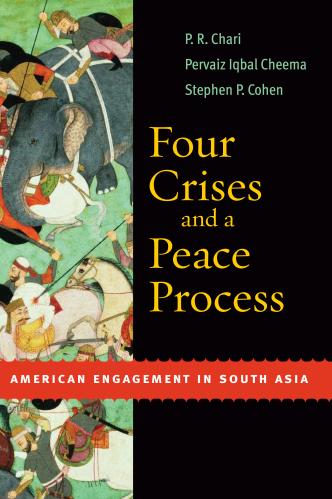
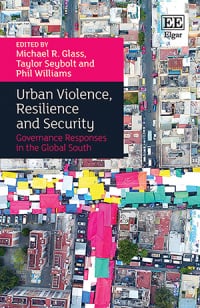
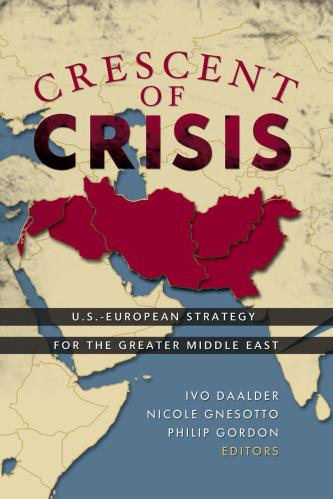
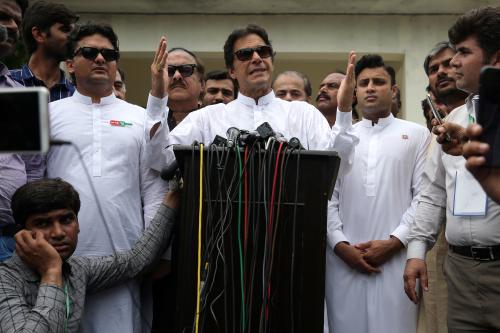
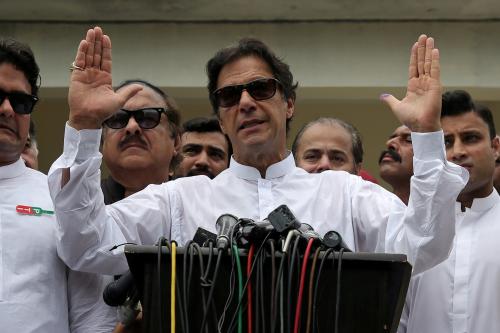
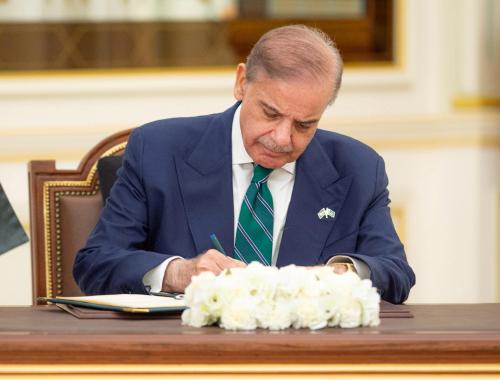


Commentary
Experts discuss Pakistan’s Imran Khan’s first 100 days in office
December 10, 2018